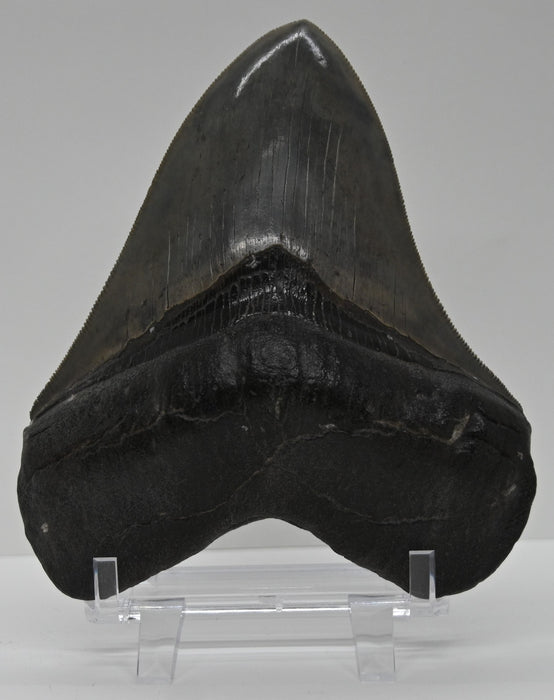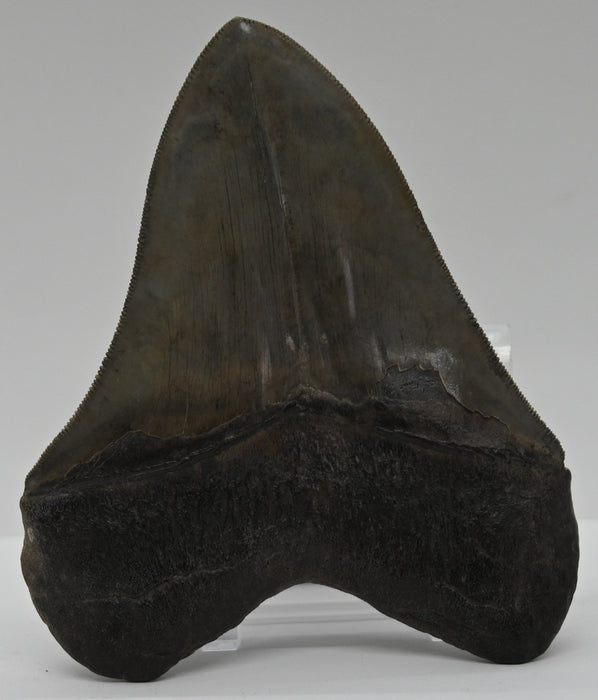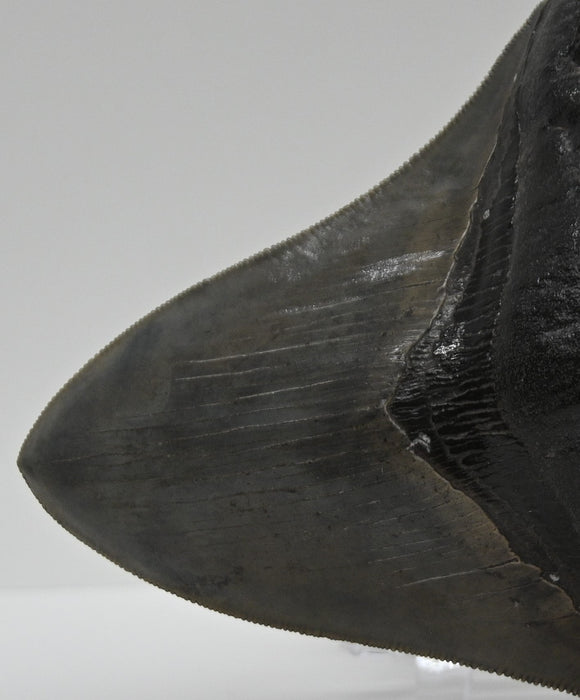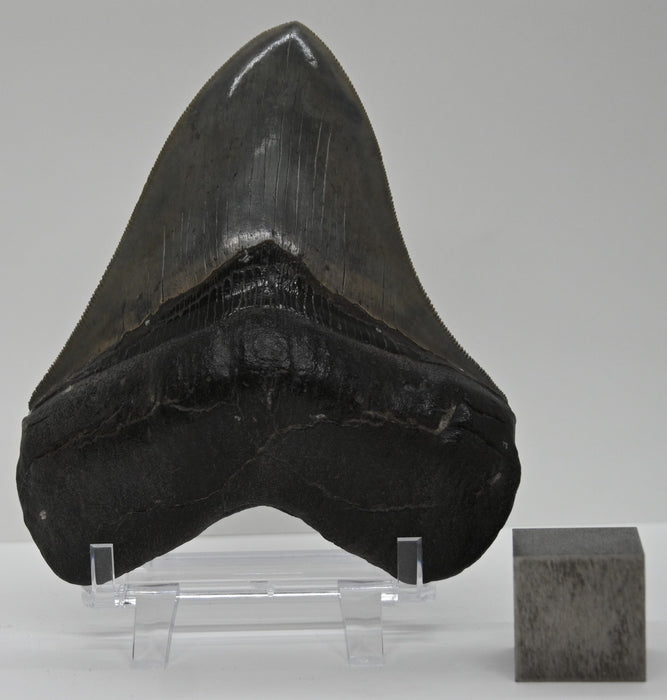
5.19" Megalodon Tooth | Georgia
Otodus megalodon
Miocene (2.6-15 MYO)
Hawthorn Formation
Savannah, Georgia
Approx. 5.19" long x 4.25" at root.
Stand not included.
This beautiful Megalodon tooth was collected near Savannah, Georgia. It showcases stunning enamel preservation and razor sharp serrations. A tooth of this size belonged to a large adult Megalodon shark, a formidable predator of the Miocene seas.
Megalodon thrived during the Miocene and Pliocene epochs. Fossil evidence suggests it had a cosmopolitan distribution, with remains found in marine deposits across North and South America, Europe, Africa, Asia, and Australia, indicating it inhabited warm, shallow coastal and open ocean waters.
Due to the cartilaginous nature of shark skeletons, most fossil evidence of O. megalodon consists of teeth and vertebral centra. Estimates of its size are primarily derived from comparisons with modern great white sharks (Carcharodon carcharias). Based on tooth dimensions and vertebral reconstructions, Megalodon is estimated to have reached lengths of 15–20 meters (50–65 feet), making it one of the largest predatory fish to have ever lived.
Megalodon’s teeth are triangular, serrated, and robust, adapted for slicing through bone and flesh with extreme efficiency. Some teeth measure over 18 cm (7 inches) in length, ranking them among the largest known shark teeth. Its powerful jaws, estimated to exert a bite force of over 180,000 newtons, allowed it to prey on large marine mammals, including whales, dolphins, and seals. Fossilized whale bones with deep Megalodon bite marks provide direct evidence of its predatory behavior.
Megalodon occupied the apex of the marine food chain, regulating populations of large marine mammals. Its extinction around 2.6-3.6 million years ago is attributed to multiple factors, including climate change, oceanic cooling, declining prey populations, and competition from emerging predators like orcas and great white sharks.
Megalodon remains a subject of fascination due to its immense size and role as an apex predator in prehistoric oceans, making it one of the most iconic extinct sharks in paleontology.



